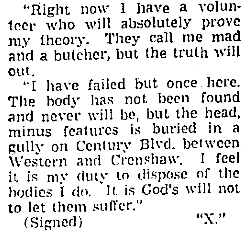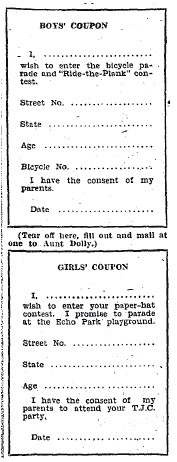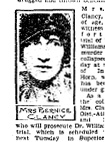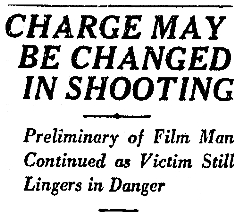March 9, 1927
Borneo

On the one hand, the Dutch government’s Eurocentric cultural imperialism is wiping out the native culture of Borneo; on the other, they’re teaching headhunters the benefits of recycling.
The Dyak have long needed a nice fresh human caput for any and every sort of local ritual, but the generations-long war against the practice by their clogphilic, decapitated-headphobic overlords, has shown them the benefits of conservation (long practiced in the densely populated liberal parliamentary democracy that is Holland).
It is reported that now, the Dyak just borrow heads from neighbors for celebrations such as the birth of a child or the ending of a period of mourning. In fact, a paltry few heads are passed around in a tribe where just a generation ago each family had a bag of its own.
(According to Dr. William O. Krohn, Chicago alienist, there’s still no lack of headhunting when absolutely necessary-a rajah’s death demands craniums, for example, and victims thus beheaded are regarded as members of the monarch’s heavenly retinue.)
Despite the Dyak’s newfound respect for Westernized ideals, Borneo’s 1957 independence from windmills and tulips removed such colonialist standards of civility. The wild and wooly Americas, though, never had a break from her fascination with beheading.
Closer to home, LAPD became head-hunters of another kind when in January 1939, Cleveland Chief of Police George Matowitz received a letter postmarked from Los Angeles that read in part:


(Relatedly, while there are few great films about Los Angeles, there are fewer great films about headhunting. And Los Angeles.)



 Beginning in 1923, Aunt Dolly’s Page occupied its own corner of the Junior Times, a Sunday supplement that urged young Angelenos to try their hands at blank verse, cartooning, and other feats of skill for fabulous prizes. There were also picnics, parades, community service projects, and a near-constant series of elections for the President of the Times Junior Club
Beginning in 1923, Aunt Dolly’s Page occupied its own corner of the Junior Times, a Sunday supplement that urged young Angelenos to try their hands at blank verse, cartooning, and other feats of skill for fabulous prizes. There were also picnics, parades, community service projects, and a near-constant series of elections for the President of the Times Junior Club





 March 2, 1927
March 2, 1927

 “Feminism is destructive of women’s happiness,†declares Gina Lombroso Ferrero, Italy’s first woman physician and daughter of
“Feminism is destructive of women’s happiness,†declares Gina Lombroso Ferrero, Italy’s first woman physician and daughter of